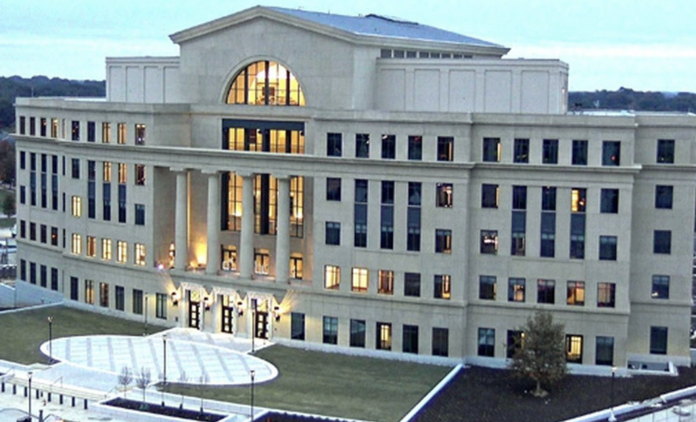*Story by Angelina Spencer-Crisp
A few years ago, the Georgia legislature decided that the state’s adult clubs were purveyors of child sex trafficking. It passed a 1% tax on strip clubs. The funds, they say, are to combat child sex trafficking.
Opponents of the law say it unfairly punishes businesses with no connection to the sexual exploitation of children, while others ask why the state plans to profit from the proceeds of sex trafficking, if what the state claims, is indeed true.
A lawyer for the state told the Georgia Supreme Court that studies have shown strip clubs are frequented by child sex traffickers, and taxing strip clubs is less harmful to those businesses than banning them altogether.
The businesses say “adult” clubs are not places where child traffickers or pedophiles hang out and if child sex trafficking is as rampant in adult clubs as the state claims, why aren’t the laws on the books, or the state, doing its job?
Consequently, most of the state’s ‘evidence’ presented as “studies” are anecdotal, or inaccurate, based on faulty data, or show NO correlation to adult clubs and child sex trafficking. Many of Georgia’s adult clubs have also been heavy supporters and participants of COAST (Club Operators Against Sex Trafficking), where special federal agents from Homeland Security Investigations, led consecutive annual trainings on how to recognize, and report, suspected incidences of human trafficking. Annual COAST meetings have been codified in both Louisiana and Houston, Texas law as a viable training program.
According to the GA Attorney General’s office, Georgia currently ranks fourth in the nation for sex trafficking after, CA, TX, and FL–or it may not. According to the National Human Trafficking Hotline, Georgia had the seventh highest number of human trafficking cases in the U.S., including both sex and labor trafficking victims.
David Okech, associate professor at the University of Georgia says, “Without baseline data, it is difficult to measure the (human trafficking) problem, which makes it difficult to know if any interventions are effective…There does not yet exist a proven methodology or sampling approach that will reliably measure baseline data, making establishing an effective program a major challenge.”
The Georgia Bureau of Investigation also says in a report that, “There is a significant disparity between the number of victims documented by law enforcement and victims service organizations… This disparity is attributed to a number of factors including, but not limited to… an inability to effectively identify and treat victims.” The report also adds: “Common misconceptions and lack of understanding could be further hindering the ability of law enforcement to effectively recognize and mitigate human trafficking…”
Additionally, the state ignores other studies, which show that sex trafficking in adult clubs is less than 1% of the U.S. trafficking problem. And if the data is true (that it’s less than 1% in clubs) how can the state pass a tax on the clubs while ignoring online sites and hotels, which consistently rate among the top two venues for sex trafficking in Georgia? And if it isn’t true, and the data is lacking, how can they tax adult clubs?
A check of the Georgia State Attorney’s office shows a Power Point Presentation where it claims that hotels and airports are the top venues for child sex trafficking. Yet the state unequally, it appears, applied the sex trafficking tax only to strip clubs. If airports and hotels are child sex trafficking hotbeds, why aren’t they being taxed? Adult clubs aren’t the only ones asking this question.
The fixation on adult clubs as dens of child sex trafficking, some say, detracts from and does disservice to human trafficking victims, who are likely found, not in strip clubs, but hotels, in foster care, and online.
Notably, Georgia also appears to be a hotbed of misinformation or false information when it comes to child sex trafficking. For example, the U.S. Marshal’s Office was credited for rescuing 39 children held in a Georgia trailer last year by a sex trafficking ring. U.S. Marshal, Josue Rivera, who led the rescue operation, set the record straight: “It wasn’t a ring in terms of a single trafficker or anything like that. These were kids that were at-risk to be exploited by potential traffickers.”
Rivera told media that U.S. Marshals did rescue 39 kids who were reported missing in Georgia. But, he notes, the kids were found in different locations throughout the country including, South Carolina, Tennessee, Oklahoma, Florida, Kentucky and Michigan–and none in Georgia strip clubs.
Georgia’s General Assembly passed the Safe Harbor Act, also known as Rachel’s Law, in 2015. The idea behind the legislation is noble; to create a source of tax revenue to support direct victim services for sexually exploited children. The following year, Georgia voters overwhelmingly approved a referendum adding the Safe Harbor Act to the state Constitution.
In 2017, Georgia ACE (The Georgia Association of Club Executives), challenged the law.
Last year, Fulton County Superior Court Judge Constance C. Russell declared it unconstitutional. She said a section of the law, which applied the tax to businesses that charge customers to view “persons exhibiting or modeling lingerie”, was vague and could resort in arbitrary enforcement.
Last week, Alexander Volokh, a lawyer representing GACE, argued the tax unfairly targets strip clubs to raise money to combat criminal activity for which they are not responsible. “They’re being blamed and penalized for a problem they’re not involved in and don’t contribute to,” he told the court.
Ross Bergethon, GA Deputy Solicitor General, told the court that members of the General Assembly relied on studies showing that both adult and child prostitution often occur inside strip clubs–and then added: Courts have routinely upheld the right of governments to ban clubs that combine nude dancing with the sale of alcohol from their jurisdictions. “There’s no reason to treat this minimal tax on the same combination any differently,” he said.
Volokh cited U.S. Supreme Court rulings that nude dancing is a constitutionally protected form of expression under the First Amendment’s right to freedom of speech. To get around that, the state would have to demonstrate the tax is necessary to combat child sex trafficking, and that those funds could not be obtained through any other means, he said. “The legislature could just have easily appropriated money from the general fund and be just as effective,” he said.
Georgia Chief Justice David Nahmias told Volokh the case doesn’t just involve nude dancing because the clubs are engaged in a combination of nude dancing and the commercial sale of alcohol. “There’s not a direct limitation on speech,” Nahmias said. “There’s a limitation on speech associated with the consumption of alcohol in a commercial setting.”
But Nahmias also questioned Bergethon’s reliance on studies linking strip clubs to child sex trafficking.“Almost all of the studies showed no connection between the clubs, prostitution, violence and child sex exploitation,” the chief justice said.
The court is expected to rule on the case later this year.





























